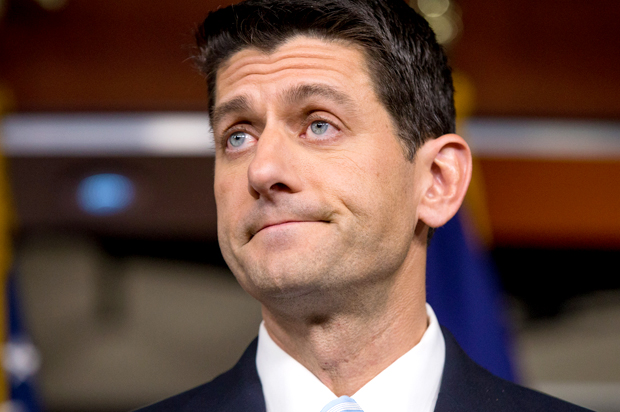As you read this, Republican voters in New Hampshire are tromping off to their polling places to vote for candidates who promise that, as president, they’ll do away with the Affordable Care Act. Their reasons for wanting to wipe out Obamacare are many and hyperbolic: it’s a “job-killer,” it doesn’t work, it’s hurting American families, it’s denying people coverage, and so forth. These rote talking points form the backbone of conservative and Republican opposition to Barack Obama’s signature policy achievement, and the criticisms persist despite ever-growing mounds of evidence that they are, in fact, wrong.
The latest addition to the “Obamacare is working” evidence pile comes courtesy of the National Center for Health Statistics, which released a report Tuesday morning looking at the uninsured rates nationally and in 37 states over the first nine months of 2015. According to NCHS, the number of adults lacking insurance has plummeted since 2013, when many of the Affordable Care Act’s major provisions went into effect. “In the first 9 months of 2015, 28.8 million persons of all ages (9.1%) were uninsured at the time of interview – 7.2 million fewer persons than in 2014 and 16.0 million fewer than in 2013.”
As one would expect, the greatest reductions in the uninsured rates have been among the poor. In 2010, per the NCHS report, the uninsured rate for poor and near-poor adults was over 40 percent. In the first nine months of 2015, the rate had plunged to 26 percent for the poor, and 24 percent for the near-poor. The percentages of poor and near-poor children without insurance have been cut in half over the same time period. It’s probably safe to assume that the Affordable Care Act’s expansion of Medicaid eligibility factors heavily into this reduction, and NCHS found that states that elected to expand Medicaid have seen a sharper decline in their uninsured rates than states that rejected the expansion.
Minority groups have also seen huge cuts to their numbers of uninsured, with Hispanics benefitting the most – the uninsured rate for Hispanics fell from 40 percent in 2013 to 28 percent in 2015.
There are, of course, plenty of caveats to bring up. The report doesn’t directly attribute the growth in coverage to the Affordable Care Act, and some gains are certainly attributable to the improving economy (though the dramatic downward trajectories of the trendlines starting in 2013 is difficult to ignore). Also, coverage is not the only metric by which the Affordable Care Act’s success is judged – one also has to consider affordability and access to healthcare. Even still, the report offers strong evidence that the ACA works to expand coverage, and it works best in places that don’t throw up resistance to its implementation.
And when you can put numbers on the number of people who have gained health coverage since the law’s implementation, you start putting Republican politicians in a tough spot politically. After more than a half-decade of loud, angry opposition, the GOP still does not have a viable replacement for the health law they’ve voted dozens of times to repeal. They’re promising that 2016 will be the year that they finally get around to crafting some healthcare legislation, but that promise has been made and broken several times already. The GOP presidential candidates all have various skeletons of healthcare plans that traffic heavily in free-market pabulum but don’t come close to guaranteeing that everyone who gained coverage through the ACA will stay covered after it gets repealed.
Bottom line: the law’s defenders have successes they can point to and data to back up the assertion that the Affordable Care Act is doing its job. Its opponents, on the other hand, still can’t explain why their preferred vision is preferable to the reality of Obamacare.


